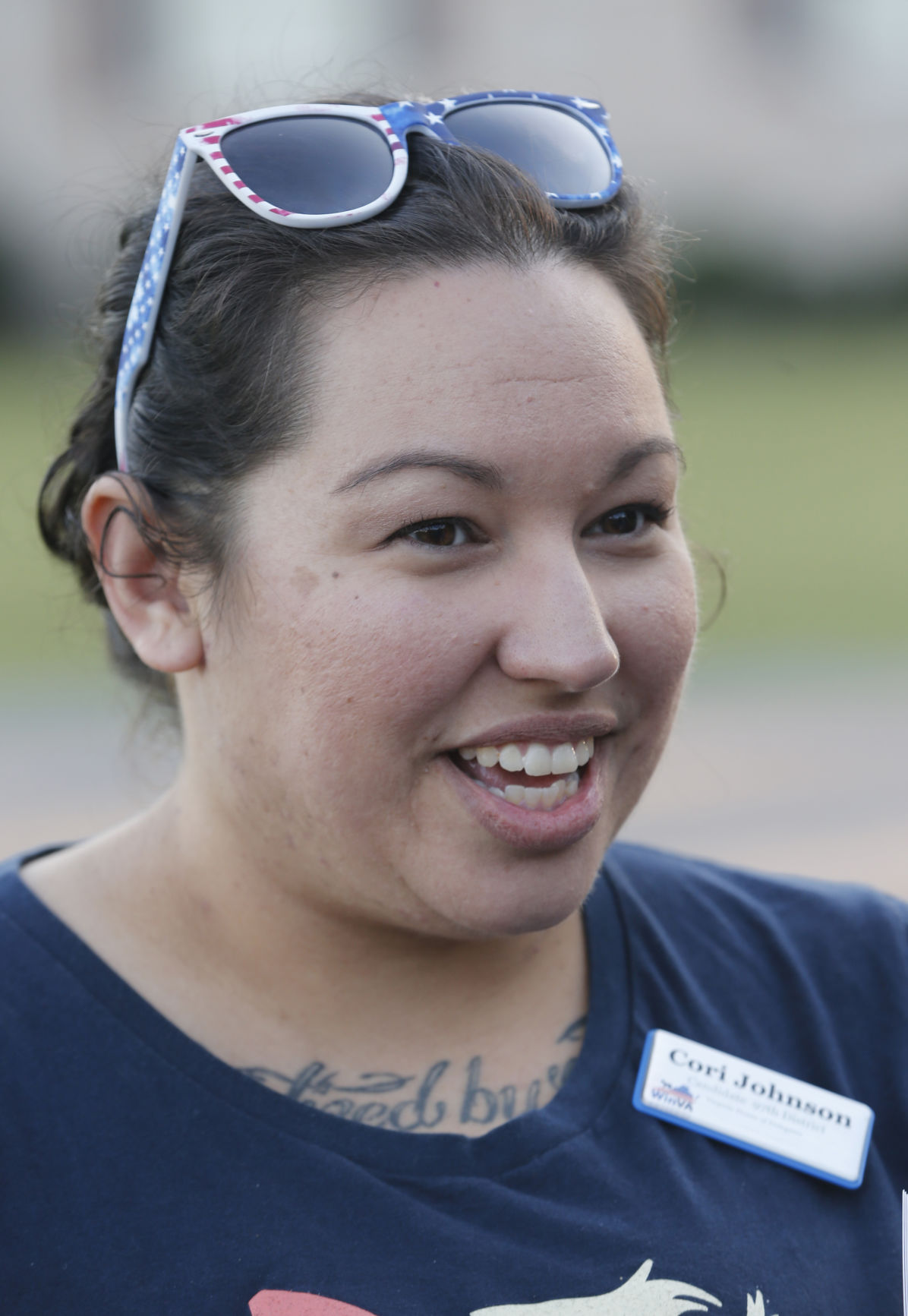RICHMOND, Va. (AP) — On Election Day last year, Julie Copeland, who leads a training program for Democratic women who want to run for office in Virginia, began to worry she might soon be out of a job. “I was
RICHMOND, Va. (AP) — On Election Day last year, Julie Copeland, who leads a training program for Democratic women who want to run for office in Virginia, began to worry she might soon be out of a job.
“I was so thrilled to find out I was completely wrong,” Copeland said in a recent interview. Her organization, Emerge Virginia, saw a 200 percent increase in applications after Donald Trump’s presidential victory over Hillary Clinton. It now has 18 program participants running for the House of Delegates, where all 100 seats are up for election next week.
Emerge Virginia’s trainees are among 43 female Democratic House candidates, which the state party says is its highest number ever. There are also nine Republican women and one independent running, and several women who could make history as minorities. Altogether, it’s an election could make Virginia’s lower chamber more accurately reflect the population it represents.
Jennifer Carroll Foy, a public defender and mother of infant twins who was among the first women to graduate from the Virginia Military Institute, said Trump’s victory was part of what piqued her interest in running for the House, where delegates serve two-year terms.
But Carroll Foy, an African-American Democrat, said she was also driven by recent “anti-woman” legislation in the General Assembly, a sentiment echoed by other Democratic candidates in interviews. Among examples Carroll Foy cited was a House-passed resolution this year that would have designated Jan. 22, the day the Supreme Court handed down its decision in the landmark Roe V. Wade abortion case, as the “Day of Tears” and encouraged Virginians to fly flags at half-staff.
“When you keep poking, we’re going to respond. I think that’s why there’s a surge of women who are now running,” she said.
She’s outraised her Republican opponent for the open 2nd District seat, Mike Makee, nearly three to one, according to campaign finance reports that cover through the end of September.
Virginia, which has the oldest continuous lawmaking body in the country, is particularly unrepresentative when it comes to women officeholders.
Between the House and Senate, women account for about 19 percent of lawmakers. That puts Virginia 38th among state legislatures for the proportion of women in office, according to statistics maintained by the Center for American Women and Politics at Rutgers University.
The state has never had a female governor, and no woman has been elected to statewide office since Mary Sue Terry served as attorney general in the 1990s. Republican Jill Vogel, a state senator and the Republican nominee for lieutenant governor who holds the distinction of being the first lawmaker to give birth to a child while holding office, could end that streak this year.
Heather Cordasco, a Republican hoping to unseat Democratic incumbent Mike Mullin in eastern Virginia’s 93rd district, said women have a heavier lift when it comes to running for office.
Not only are they often juggling work and the lion’s share of childcare responsibilities, but they have to worry about “silly things” men don’t, like being judged for their appearance, she said.
“We’ve got to figure out in every situation, ‘What am I supposed to be wearing? How am I supposed to look?'” she said.
Two years ago, Democrats had 24 women candidates. And Republicans say they haven’t had as many women running since 2009, where there were 10.
Apart from sheer numbers, Election Day could bring a number of historic firsts for female candidates.
Kathy Tran, a Democrat seeking an open northern Virginia seat, would be the first Asian-American woman elected to the House of Delegates, according to the state party.
She’s running against Republican Lolita Mancheno-Smoak, who along with two Democratic candidates — Elizabeth Guzman and Hala Ayala — could be the first Latina members of the House. Though the state’s population is about 9 percent Hispanic, the House currently has only one Latino delegate.
Another possible first could come in northern Virginia’s 13th District, where Danica Roem, a former journalist, is challenging longtime incumbent Bob Marshall. If elected, Roem would be the state’s first transgender representative.
Cori Johnson, who’s challenging incumbent Republican Chris Peace in a district that encompasses Hanover, New Kent and King William counties, said it’s important for women to get elected so that someone who “has a chip in the game” also has a role in making decisions.
“Somebody who has never had to run out of birth control and work with their insurance company to try to get birth control can’t possibly grasp the decisions that they’re making when they legislate birth control. That’s just one example of why it’s critical to have women represented,” she said.




